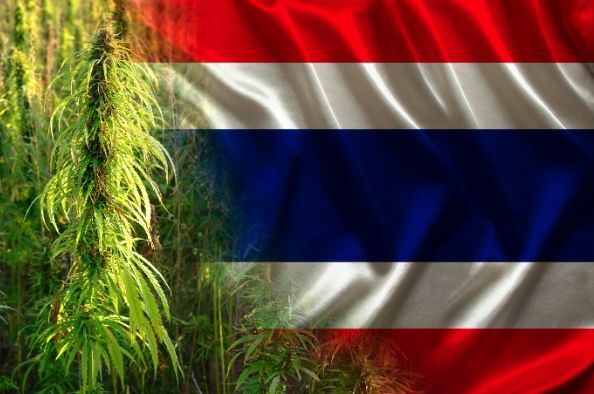Thai cannabis vendors call out illegal importation practices

Thailand is known for its glittering beaches, bustling street food scene, expert Muay Thai fights, and full moon parties. But now it’s known for something that no one could have expected just a few short years ago – becoming the world’s home of the happy herb, marijuana.
It’s been less than a year since Thailand decriminalised the growing of marijuana within the country. In a bid to capitalise on a blossoming industry, the country opened up the floodgates to its people, allowing households to grow up to six plants themselves once registered with the government and farms to farm the crop after getting a permit. It was a move seen by many as a smart decision and a way to bring wealth into the country by enabling its people.
And you would think that it has worked if you took a look at the growing list of dispensaries in the country, the plumes of smoke emerging from tourist haunts, and even the dedicated shopping mall on Khao San Road, Plantopia. Is Thailand the new Amsterdam? One might think so, just from the look of it.
But it’s not all roses for the marijuana industry within the country. In fact, much of the weed that you might come across within the country is actually made up of illegal imports, often from the US, that end up costing less to the consumer at the end of the day. And because the laws surrounding the sale of marijuana in the country are so hazy right now, along with difficult to enforce, it means that those the decriminalization was supposed to help – poor farmers – are actually not that much better off.
And more illegal goings on
Yet, cannabis and its legislation in Thailand have not been the only hot topic in recent news. A substantial amount of illegal activity has been reported in relation to online gambling chains, with people being questioned, assets being seized and culprits being imprisoned. The reality is, no matter how you try to hide yourself at a no deposit anonymous casino, the activity has yet to be legalised, and until it is, harsh penalties will be implemented on those who partake in it.
Also in the seedy underbelly of the country, the government is trying to crack down on illegal Chinese criminal enterprises, people smuggling operations, and fake land title deals. In a bustling country with a population of over 66 million people, and bordered by Myanmar, Laos, Cambodia, and Malaysia, there is always something brewing in the news.
Imports flooding the market
Local players are now complaining that the market space is being flooded by illegal, imported marijuana. Weed is often smuggled into the country in fruit or vegetables, or other plant-based goods, as it is easy to hide from customs. And this is to say nothing of the times when a blind eye may be turned, thanks to a golden handshake. With the average current monthly wage in Thailand working out to around USD 2900, it can be easy to see how bribes could be placed.
Because the price of imported weed is less than the price of weed within the country, it’s leading to inequity in the market.
Why is weed being imported into Thailand?
Before June 2022 in Thailand, you faced up to five years in jail simply for possession of marijuana. To think that a mature industry could spring up overnight was a preposterous thought. Thanks to decades of a hard stance on drugs within the country, the knowledge of how to cultivate the right breeds of marijuana successfully, on a large scale, is mainly knowledge that has been lost along the path of history. Before the 1970s and 1960s, marijuana was a staple in Northern Thailand, even occurring in plenty of local dishes. But thanks to changing world opinions it was all but eradicated, replaced with strict anti-drug attitudes.
However, some other countries, such as the US, have had marijuana decriminalised for some time now. This means that their growing practices have matured and massive crops can be grown for a fraction of the price that it used to cost. What this all adds up to is a cheaper imported product than a locally grown one.
Is legislation the problem?
Marijuana was decriminalised in Thailand in an extremely rapid amount of time, meaning that the country’s government did not have a lot of time to establish a fully-fledged framework within which to enable marijuana operations. The country itself operates quite differently from other places where marijuana is decriminalised, such as many US states. This means that Thailand cannot adopt laws directly from other jurisdictions; they need to be adjusted to account for the country’s cultural and operational differences.
Latest Thailand News
Follow The Thaiger on Google News:


























